Perlite for Cannabis: Key Benefits and How to Use It Properly
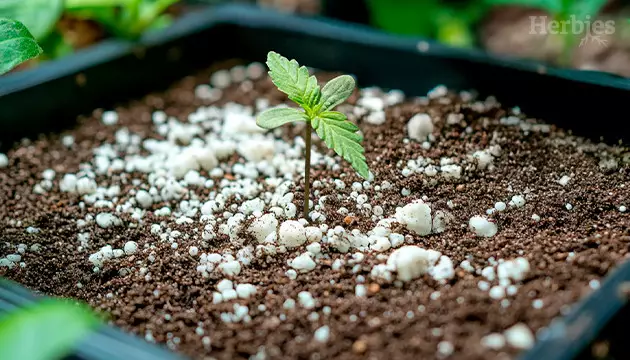
Every cannabis grower wants to get the best out of their plants – but how can you achieve this and maximize your yields? We’ve found one of the best tools to elevate your growing experience, the true gem among all of the tips for growing cannabis is to use a quality substrate: perlite.
Not only does it have excellent drainage and aeration capabilities, but it also provides long-term benefits, making it a real find for effective plant growth. You don’t need to choose between nurturing your plants and giving them enough freedom to thrive – using perlite for cannabis offers you the best of both worlds. In this article, we’ll delve into what perlite is, its benefits and possible drawbacks, and how to implement it in your growing journey.
What Is Perlite?
Perlite is a lightweight volcanic glass that undergoes heating and expansion. It’s a sterile and inert substrate that is often called “volcanic popcorn” due to its capacity to pop and expand when heated to approximately 1,600°F (871°C). It doesn’t contain microorganisms, which means you can easily use it without worrying about pests.
Is Perlite an Organic Soil Amendment?
Although perlite is an all-natural substance, it can’t be called an organic material since it doesn’t contain carbon. However, it’s still a great tool for enhancing the physical properties of soil, as perlite is 100% safe for your plants and doesn’t promote the penetration of harmful chemicals or pathogens into the soil.
Benefits of Perlite
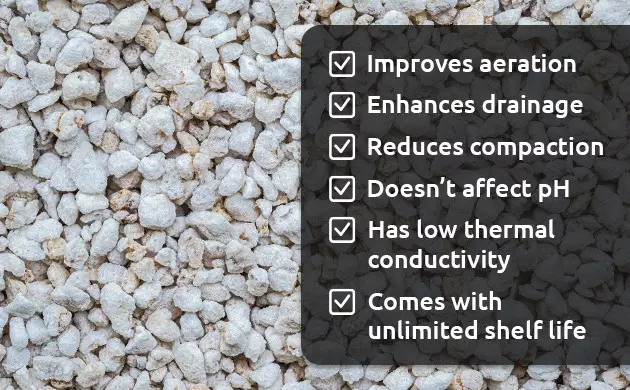
Perlite is an efficient way to maximize your yields for some good reasons. Let’s get down to them – what does it actually do?
Improves Aeration
One of the outstanding features of perlite is its ability to improve aeration in soil. Cannabis thrives when it’s grown in a well-aerated environment. In such conditions, the plant’s roots can easily breathe and access oxygen, resulting in robust and healthy growth.
Enhances Drainage
Cannabis plants are highly sensitive when it comes to overwatering. Does perlite help with drainage? Obsidian allows excess water to drain from a pot or garden soil easily. At the same time, it’s permeable enough to provide air access to the root system of plants. The lightweight structure of perlite also prevents root rot and many other potential issues.
Reduces Compaction
Soil becomes compacted over time because of a few factors, including watering and foot traffic. This may be a problem for any cannabis grower, as it restricts root growth and limits access to water and nutrients. However, another outstanding feature of perlite is that it reduces compaction. As a result, you get a friable texture of soil that boosts root growth and allows your plants to get everything they need.
Doesn’t Affect pH
Perlite is pH neutral, meaning it won’t affect the general pH balance of your soil. This benefit has a lot to offer: it reduces the acidity of the soil, contributing to the fact that the process of soil salinization slows down. Moreover, you can wash dry perlite after using it to restore its pH to 7.0 and then use it again. It is a go-to for long-lasting usage, as it doesn’t decompose quickly over time.
Has Low Thermal Conductivity
This feature means that perlite contributes to regulating soil temperature, allowing you to maintain consistent temperatures for root systems. In addition, this helps in preventing the freezing of the root system. In terms of plant health, perlite is an excellent insulator to protect plants from temperature changes.
Comes with Unlimited Shelf Life
Perlite is not an organic material, meaning it won’t decompose over time. Since it stays the same as time passes, perlite is a go-to component for a successful and productive growing experience. In fact, complete destruction of perlite only occurs in approximately 3-4 years after repeated use, loosening, and digging.
Possible Drawbacks of Perlite
Despite its remarkable benefits, there are some potential drawbacks to consider if you want to use perlite in cannabis cultivation. Let’s get into it.
Can Turn Into Dust
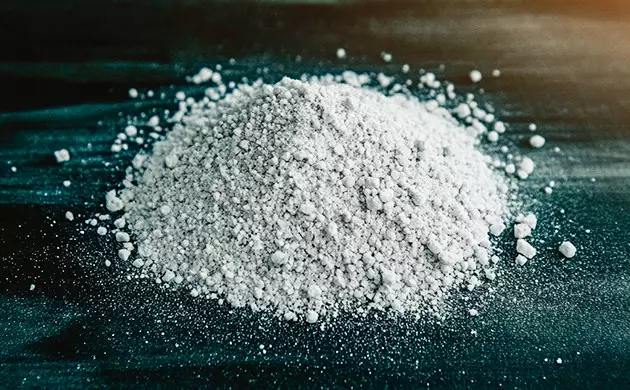
One of the main drawbacks of perlite is its dustiness: it may cause some problems with hydroponic system filters. That’s why it’s crucial to handle perlite attentively, trying not to inhale its dust. It’s also recommended to wear a mask to prevent any possible harm. Moreover, it should be thoroughly washed before use.
Takes a Toll on the Environment
Despite the fact that perlite is highly useful and non-toxic when it comes to enhancing plant growth, the process of mining it can be detrimental to the environment. When mining perlite, large amounts of earth are removed, resulting in the possible disruption of local ecosystems.
How to Use Perlite
Perlite has many advantages that more than make up for its drawbacks, but to ensure your plants get the maximum benefit, you need to use it correctly.
Adding Perlite to Soil
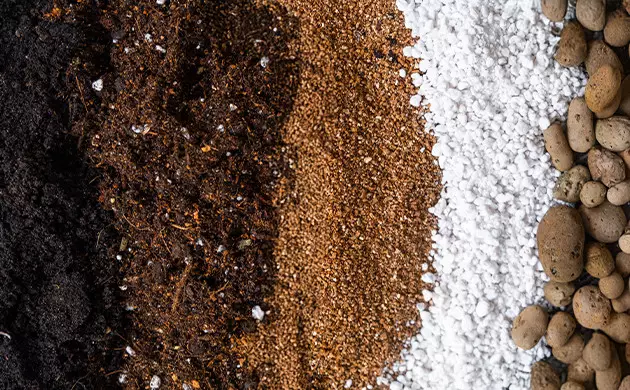
When you mix perlite into soil, stick to a common ratio of 20-30% perlite to 70-80% soil. This combo improves drainage and airing while keeping enough moisture to provide healthy plant growth in your garden. You can also adjust the ratio according to your individual conditions and preferences.
Using Perlite in Coco
Coconut coir (coco coir) is also a widely used growing medium in cannabis cultivation. If you want to enhance drainage and aeration even more, try mixing perlite with coco. You will need 30% perlite and 70% coco to get the best outcome.
Growing Cannabis in Perlite
You can grow cannabis directly in perlite, but keep in mind that it requires additional effort. As perlite doesn’t hold moisture that well, you’ll need to water it more often. You may also need to use a nutrient solution tailored for hydroponics in order to provide enough nutrition to your plants.
FAQ
Here are some clarifying questions to understand whether using perlite could suit your needs. Let’s get into it!
How Much Perlite Should I Add to Potting Soil?
The best option is to keep perlite levels around 20-30% in your mix, as excess content can lead to overly fast drainage and insufficient moisture retention.
Should I Use Perlite or Vermiculite?
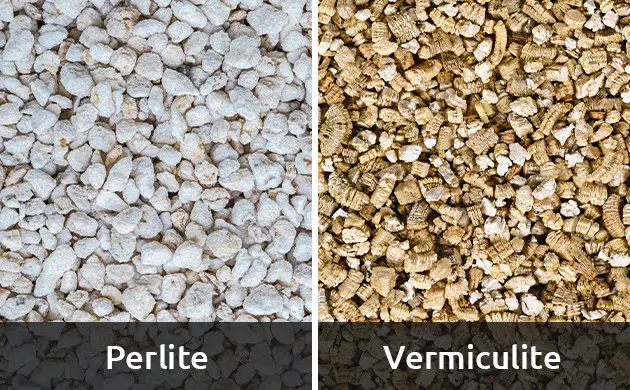
It’s totally up to you – both are perfectly suitable for efficient cannabis cultivation. While perlite offers improvements in drainage and aeration, vermiculite is better at retaining nutrients and moisture. Perlite is a go-to for mixes where good drainage is crucial. The choice between them depends on your conditions and needs, such as climate and watering schedule. However, to get the very best out of your plants, try mixing both of them in a pot: 70% soil, 20% perlite, and 10% vermiculite.
Does Perlite Have Nutrients?
Perlite doesn’t contain nutrients in and of itself, but it plays a crucial role in helping deliver them to plants by creating a well-drained environment.
Final Thoughts
Perlite is undoubtedly a great tool for cultivating cannabis due to its numerous benefits that outweigh its drawbacks. If you want to maximize your yields without sacrificing too much money and time, this substrate is a must-try for you. Just make sure to use it consciously and consider your specific growing conditions.
Herbies Head Shop expressly refuses to support the use, production, or supply of illegal substances. For more details read our Legal Disclaimer.
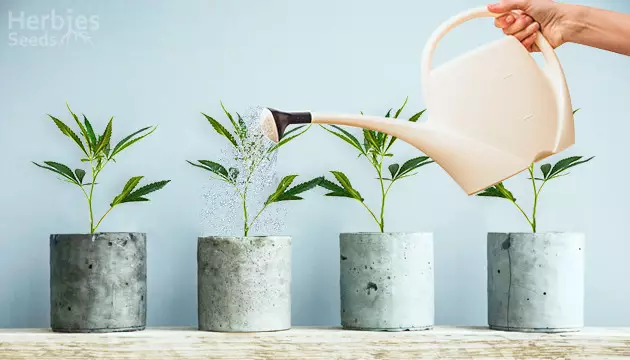
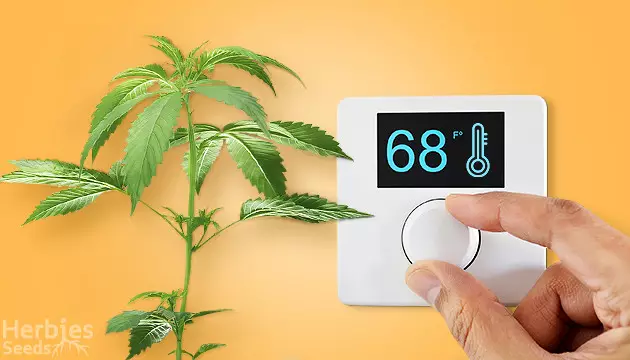
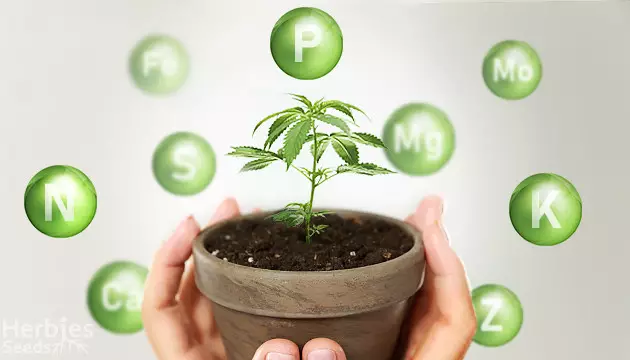



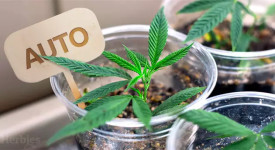



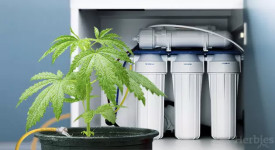
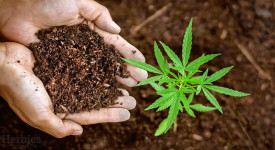
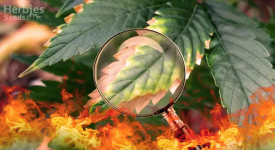
Thank you for leaving a comment for us!
Your feedback will be posted shortly after our moderator checks it.
Please note that we don’t publish reviews that: